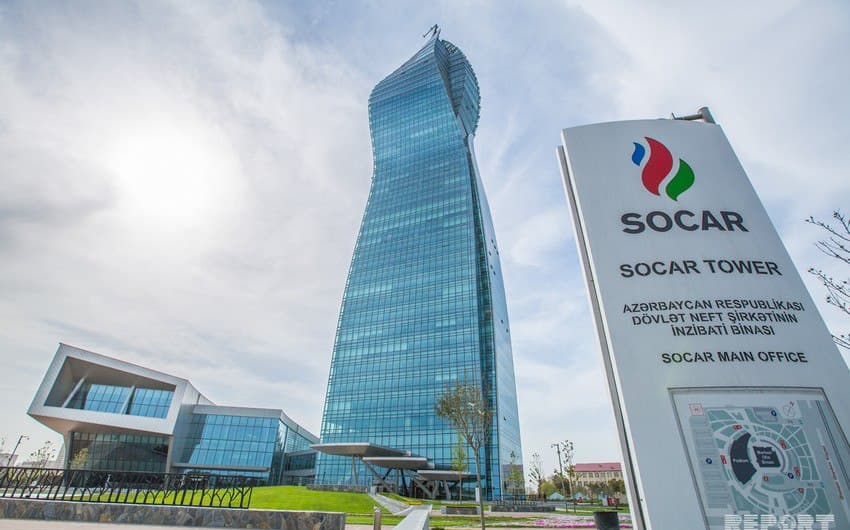BAKU
Azerbaijan’s state energy firm SOCAR reported a net loss and a more than 40 percent decline in revenue last year, as the COVID-19 crisis caused a sharp drop in the global oil price, and the country committed to produce less oil under an OPEC+ deal to offset its effects.
SOCAR’s revenues declined 40.8 percent year-on-year to 49.607 billion manats and a net loss of 1.734 billion manats ($1.02 billion) in 2020, down from a 651 million profit a year earlier, the company said in an annual financial report that was audited by Ernst & Young.
Over 61 percent of SOCAR’s total revenues, the largest portion, came from operations in Switzerland at totalled 30.478 billion manats last year, although the volume declined 2.1 times year-on-year.
As the pandemic disrupted production as well as demand for oil, OPEC+, a group of the Organisation of the Petroleum Exporting Countries (OPEC) and allied producers of which Azerbaijan is a member, cut output by a little more than 7 million barrels per day (bpd) to support prices and reduce oversupply. Members of the group agreed to ease cuts gradually this year – by 350,000 bpd in May, another 350,000 bpd in June and around 450,000 bpd in July.
SOCAR’s revenue from operations in Turkey was 7.618 billion manats, which is 18.8 percent less than in 2019. Turkey accounted for 15.4 percent of total revenue in 2020.
SOCAR’s revenue from operations in Azerbaijan was 6.311 billion manats, from the UAE, 2.233 billion manats, from Georgia, 1.045 billion manats, with 1.932 billion manats coming from other countries.
The company’s profit from operating activities declined 5.4 times year-on-year to 479 million manats, while its profit tax deductions to the state budget declined 2.3 times to 297 million manats.
SOCAR’s assets decreased by 1.9 percent year-on-year to 64.155 billion manats. The company’s long-term assets decreased by 0.7 percent to 45.9 billion manats, short-term assets – by 4.8 percent to 18.255 billion manats.
SOCAR’s capital decreased by 9.9 percent to 21.923 billion 923 manats, while its authorised capital increased by 8.6 percent to 4.696 billion manats.
The company’s debt rose 2.9 percent up to 42.232 billion manats. Long-term liabilities declined by 9.1 percent to 21.599 billion manats, while current liabilities increased by 19.4 percent to 20.633 billion manats.
Most of Azerbaijan’s oil production comes from the giant offshore Azeri-Chirag-Guneshli (ACG) oilfields, developed by a BP-led consortium, of which SOCAR is a member. The country uses the Baku-Tbilisi-Ceyhan (BTC) pipeline to export oil from the ACG via Georgia and Turkey. It also exports oil through the Baku-Novorossiisk pipeline via Russia, through the Baku-Supsa pipeline via Georgia and by rail across Georgia.

